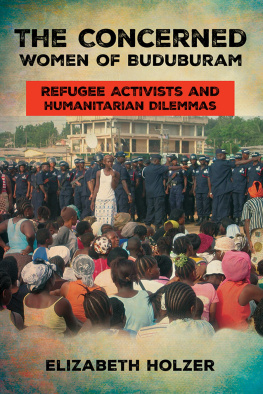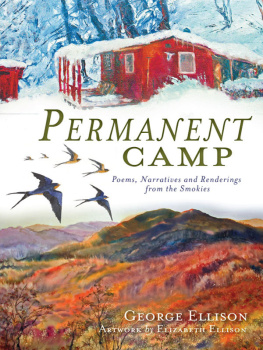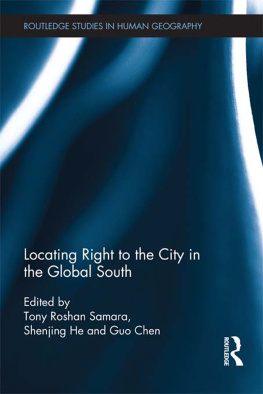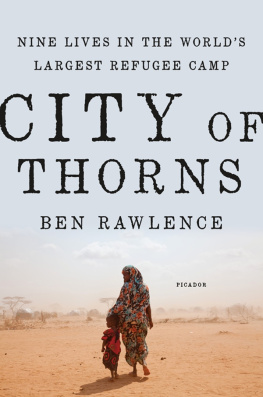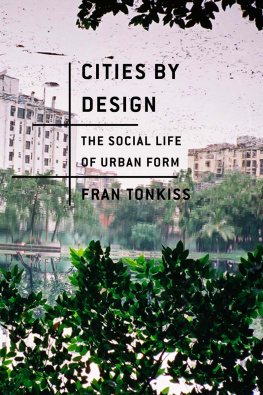
Jansens concept of humanitarian urbanism offers significant and much needed insight into refugee camps and the biopolitics which dominate the lives of the people who live in them.
Roger Zetter, Refugee Studies Centre, University of Oxford (Emeritus)
Refugee camps are the defining spaces of contemporary humanitarianism. In this vivid ethnography, Bram Jansen cogently shows how the camp evolved into an improbable city, and how refugees became potential migrants.
Didier Fassin, author of Humanitarian Reason: A Moral History of the Present
At a time when Europeans are discovering the brutal reality of their policies on migrant camps, this book should open the minds of politicians, activists and students alike.
Michel Agier, Director of Studies, EHESS, Paris
An unrivalled and insightful account of Kakuma as a space in which people seek refuge, but also live and change. The book highlights the camps place in the regions political economy as a home, a rear base, and as a stage in longer refugee journeys.
Gabrielle Lynch, University of Warwick
Jansen challenges the notion of the camp as a place of exception, instead presenting it as a dynamic experiment of social organisation. His argument is underpinned by the rich ethnographic material presented in this clear, compelling and very well-written volume.
Oliver Bakewell, University of Manchester
A must read for anyone interested in the transformation of refugee camps into new manifestations of the urban. Empirically rich, illustrative and provocative, this is a welcome contribution to debates on the workings of refugee camps today.
Claudio Minca, Macquarie University
Politics and Development in Contemporary Africa
Published by one of the worlds leading publishers on African issues, Politics and Development in Contemporary Africa seeks to provide accessible but in-depth analysis of key contemporary issues affecting countries within the continent. Featuring a wealth of empirical material and case study detail, and focussing on a diverse range of subject matter from conflict to gender, development to the environment the series is a platform for scholars to present original and often provocative arguments.
Editorial board:
Rita Abrahamsen (University of Ottawa); Morten Boas (Norwegian Institute of International Affairs); David Booth (Overseas Development Institute); Padraig Carmody (Trinity College Dublin); Neil Carrier (University of Bristol); Fantu Cheru (Leiden University); Kevin Dunn (Hobart and William Smith Colleges); Amanda Hammar (University of Copenhagen); Alcinda Honwana (Open University); Paul Jackson (University of Birmingham); Gabrielle Lynch (University of Warwick); Zachariah Mampilly (Vassar College); Henning Melber (Dag Hammarskjld Foundation); Garth A. Myers (Trinity College Hartford Connecticut); Lonce Ndikumana (UMass Amherst); Cyril Obi (Social Science Research Council); Susan Parnell (University of Cape Town); Mareike Schomerus (Overseas Development Institute); Laura Seay (Morehouse College); Howard Stein (University of Michigan); Mats Utas (Uppsala University); Alex de Waal (Tufts University)
Already published:
Mobility between Africa, Asia and Latin America: Economic Networks and Cultural Interactions , edited by Ute Rschenthaler and Alessandro Jedlowski
Agricultural Development in Rwanda: Authoritarianism, Markets and Spaces of Governance , Chris Huggins
Liberias Female Veterans: War, Roles and Reintegration , Leena Vastapuu and Emmi Nieminen
Food Aid in Sudan: A History of Power, Politics and Profit , Susanne Jaspars
Forthcoming titles:
Development Planning in South Africa: Policy Challenge in the Eastern Cape , John Reynolds
South Africa, AIDS and the Shadow of Biomedicine , Isak Niehaus
Infrastructure and Hybrid Governance in the Democratic Republic of Congo , edited by Kristof Titeca and Tom De Herdt
Slum Africa: Life and Governance at the Margins in Accra , Paul Stacey
Africas Shadow Rise: China and the Mirage of African Economic Developmen t, Padraig Carmody and Peter Kragelund
Struggle and Sociality in Tanzanias Informal Economy: The Micro-politics of Social Relations in Dar es Salaam , Alexis Malefakis
Economic Diversification in Nigeria: Fractious Politics and the Paradox of Prosperity , Zainab Usman
About the author
Bram J. Jansen is an assistant professor in the Sociology of Development and Change Group at Wageningen University in the Netherlands.
Kakuma
Refugee Camp
Humanitarian Urbanism in Kenyas Accidental City
Bram J. Jansen
Kakuma Refugee Camp: Humanitarian Urbanism in Kenyas Accidental City was first published in 2018 by Zed Books Ltd, The Foundry, 17 Oval Way, London SE11 5RR, UK
www.zedbooks.net
Copyright Bram J. Jansen 2018
The right of Bram J. Jansen to be identified as the author of this work have been asserted by him in accordance with the Copyright, Designs and Patents Act, 1988
Typeset in Plantin MT by seagulls.net
Index: Ed Emery
Cover design: Keith Dodds
Cover photo Tom Pilston/Panos
All rights reserved. No part of this publication may be reproduced, stored in a retrieval system or transmitted in any form or by any means, electronic, mechanical, photocopying or otherwise, without the prior permission of Zed Books Ltd.
A catalogue record for this book is available from the British Library
ISBN 978-1-78699-189-8 hb
ISBN 978-1-78699-188-1 pb
ISBN 978-1-78699-190-4 pdf
ISBN 978-1-78699-191-1 epub
ISBN 978-1-78699-192-8 mobi
Contents
This book is the result of a long period of fieldwork, reflection, discussion and contemplation. I am grateful for the support, encouragement and assistance of many people during this process. I thank the many people in Kenya from Kakuma camp and Kakuma town, for not only the many forms of assistance in trying to understand the social world of the refugee camp, but also for many hours of pleasant, intelligent and sometimes challenging company. Ethnography is dependent on the generosity of people to allow researchers into their lives. That is an enriching experience beyond academia, and I am sincerely grateful for that. I hope this book reflects this.
Some people I wish to mention specifically have been influential in various ways in the original fieldwork and writing up phase, and in the reworking of the original PhD study into this present volume. I am specifically indebted to the staff of the Refugee Study Centre of Moi University in Eldoret Kenya, specifically Prof. John J. Okumu and Singo Mwachofi. In the Netherlands, I thank my colleagues in the Sociology of Development and Change Group and the previous Disaster Studies Group of Wageningen University. Most specifically, I thank Thea Hilhorst for her continuing support and friendship from the very onset of the study. I would like to acknowledge the Dutch Organisation for Scientific Research NWO-Wotro for financially supporting the project and the Erasmus Mundus Marie Curie Humcricon program, which allowed me another year to further develop this study. I thank Tessa Diphoorn and Ilse Griek for earlier critical comments, and the editors at Zed Books for their suggestions to improve this text.
Although for those concerned it may be quite a long time ago, for me, working on this book, the memories of friendship and companionship that are so much intertwined with my analyses and experiences are very much vivid. Marije Brinkhuis, James Ndungu, Singo Mwachofi, Jok Deng and Kuol Mach were great friends elsewhere in Kenya and South Sudan. Sometime after finishing the PhD on which this book is based I met the love of my life, Marloes, who has been very supportive in following up and continuing with this study. Together we have a son called Bor whose name is only coincidentally similar to the Jonglei State capital in South Sudan.


